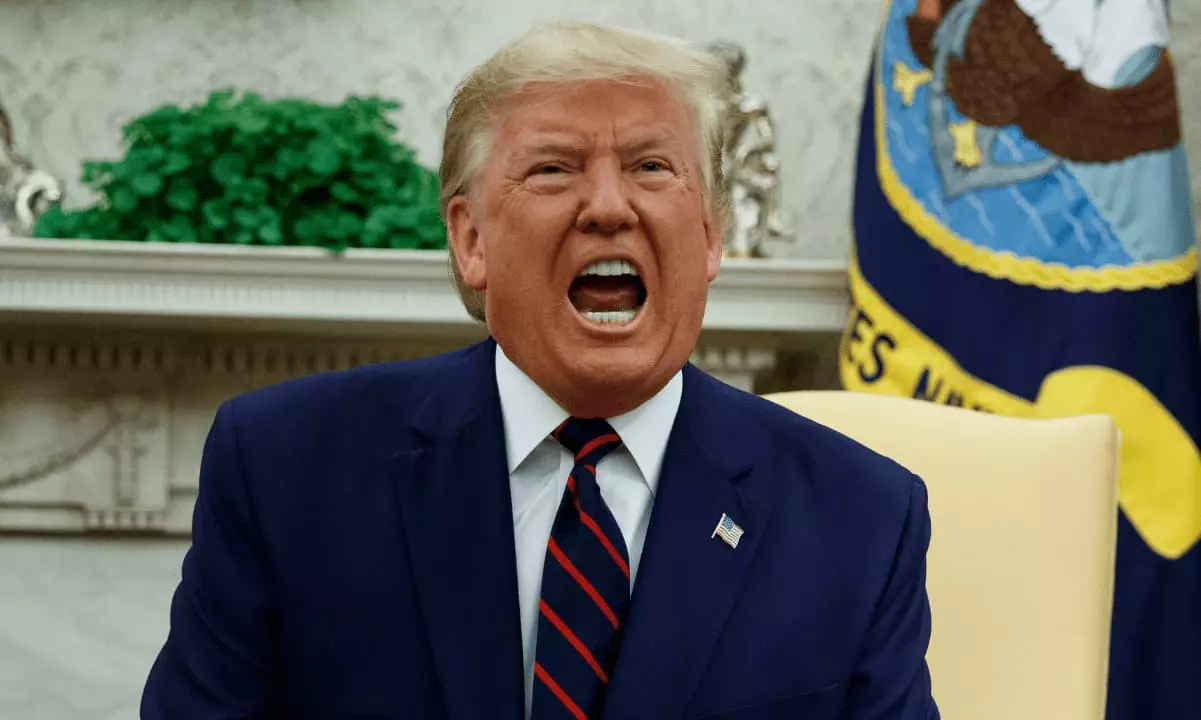In recent weeks, Brian Ballard, once a glittering gem within Washington’s lobbying elite, has found himself embroiled in controversy, illustrating how quickly fortunes can shift in the tumultuous political landscape. A post by former President Donald Trump regarding a “Crypto Strategic Reserve,” which circulated widely on Truth Social, inadvertently disclosed the precarious web of allegiances and interests that govern the world of lobbying. This incident is not just an embarrassing gaffe; it epitomizes the treacherous nature of this industry, where loyalty can evaporate overnight.
Ballard’s connection to Trump was considered a golden ticket, one that translated into a booming business and a vast network of influence. However, this latest episode unveiled a broader narrative of miscalculations and poor judgment, suggesting that perhaps Ballard’s ascent had blinded him to his precarious position within Trump’s inner circle. The fallout from the Truth Social post, which cited Ripple’s XRP token—an investment Ballard had a vested interest in—has put him squarely on the radar as a lobbyist whose once-noble reputation is now teetering on the edge of scandal.
Overstepping Boundaries: The Ripple Effect
The backlash from Trump upon the revelation of Ballard’s dealings underscores a significant misjudgment on the lobbyist’s part: trusting that his ties to the former president were solid enough to withstand scrutiny. Trump’s ire, rhetorically channeled through his aides, signals a zero-tolerance policy for those perceived to be leveraging his name for personal gain. The sentiment within Trump’s circle is one of betrayal, further alienating Ballard as the President reportedly considered him “not welcome in anything anymore.”
This moment illustrates a critical flaw in Ballard’s strategy: a misunderstanding of the boundaries that define acceptable political behavior in a world where perception is often more impactful than reality. While the capitalistic ambitions of lobbying might encourage aggressive tactics to secure client interests, it is imperative to maintain an air of respect and loyalty to those in power—especially in an administration where loyalty to Trump is penultimate. His apparent assumption that past endorsements could safeguard his future prospects reveals either naïveté or hubris.
Lobbying in the Trump Era: A Dangerous Game
Lobbying under the Trump administration was always fraught with risks, as the unpredictable nature of Trump’s leadership often bred distrust. Ballard’s situation serves as an ominous reminder that even established lobbyists must tread carefully. Trump allies voiced concerns that Ballard was misrepresenting his closeness to the President, signaling that the capital’s elite circle is increasingly wary of those who benefit from proximity to power without tangible contributions.
As lobbyists like Ballard accumulate clients and financial success—$14 million in just three months is commendable—questions linger about the ethics and transparency of their operations. This raises the inevitable question: how much value can be extracted from a lobbyist’s influence before it becomes detrimental? As Ballard’s narrative unfolds, it becomes evident that misjudgments, perceived or otherwise, have consequences that can reverberate through the corridors of power, ultimately leading to lost clients and strained alliances.
Public Relations in Crisis
In the wake of the controversy, Ballard’s public relations response appears to hinge on his insistence that he has never exploited his connections. However, denying involvement often lacks credibility when the narrative is constricted by damaging circumstances. His claim that he did not orchestrate the Truth Social post sounds disingenuous to a public accustomed to seeing political operatives maneuver with the agility of seasoned chess players. Ballard’s failure to navigate this incident could signal deeper issues within his firm’s communication strategies.
The reality is that in politics, perception is reality. Lobbyists must not only secure favorable outcomes for their clients but also manage their images meticulously. Ballard’s lapses in judgment not only threaten his reputation; they may cost him the very clients he fought to retain as they search for alternative methods to access presidential influence. This decline is not merely a series of unfortunate events but an insightful case study into the dynamics of political lobbying and the catastrophe of misplaced trust.
Ultimately, Ballard’s story serves as a cautionary tale for lobbyists and their clients alike: in the unforgiving arena of politics, one misstep can lead to an irrevocable fall from grace.

